International Community Development Profile: Pelesiana Mhole Family in Tanzania
In this series, families in the Reaching Children’s Potential (RCP) Demonstration Program in Tanzania explain how their participation improves their lives. Global Volunteers’ RCP Program engages short-term volunteers to help parents deliver essential services improving health, eradicating hunger, and enhancing cognition – with the goal of eliminating child stunting in the Ukwega Ward and throughout Tanzania. Through RCP, families obtain the nutrition, health care, knowledge, technology, and encouragement needed to combat stunting, and to ensure their children can realize their full potential. The RCP Program is a child-focused, parent-driven, family-centered, and community-led comprehensive effort. It begins with pregnancy, and continues through the 18th birthday, with a focus on the first 1,000 days of life. Read Pelesiana Mhole’s interview about the RCP Program here.
Pelesiana, we’re interested in your childhood, your family, and what a typical day is like for you. What do you appreciate most about your village?
I was born and raised in Ukwega village. Both my husband and I have primary school education, which we acquired from Ukwega Primary School. My father is very supportive and my husband sometimes. I live at my father’s house with my father and my siblings. I have one daughter, Anjelika, who is three years old and I am expecting.
I usually wake up at 6:00 in the morning to do domestic activities and cook and then head to the farm. I always spend my time in the field. We farm beans, corn, avocados, bananas, potatoes, and vegetables. When I get time to relax, I tell stories with my friends or with my siblings at home. Sometimes I use my time to sleep. I get water near here, just two or three minutes away on foot. It was great growing up here in Ukwega because there is availability of natural foods and fertile land to grow many crops.
What can you tell us about Anjelika? How was her name chosen?
Anjelika likes to play with her friends. She likes soccer and pretending to cook by using empty cans. The name “Anjelika” came from one of my siblings who is now not living in Ukwega so when she heard that I had delivered a baby, she suggested naming her “Anjelika” and I accepted. My child used to suffer so much from coughing, but after learning in the RCP Program how to keep the baby healthy, I cared for her that way and now she is doing well. Also, she used to have a big belly and I was advised by a caregiver to give her deworming pills. So I went to the Ipalamwa General Clinic to get the pills. Anjelika’s belly is now almost normal and she is doing very well. The program has been very helpful to me and my child.
“Anjelika used to have a big belly and I was advised by a caregiver to give her deworming pills. Anjelika’s belly is now almost normal and she is doing very well. The program has been very helpful to me and my child.”
– Pelesiana Mhole, RCP mom
What are your family’s biggest challenges? How do you try to address them?
Financial challenges are the biggest challenge that I always encounter. When I need something, I just borrow from the shop and then I work hard to find jobs on other people’s farms to earn money to pay my debt at the store. This happens because harvesting is seasonal and we don’t always have food to eat in the house.
When you learned about hand-washing stations, what did you decide to do at home?
When I first learned about the hand-washing station, I shared the knowledge with my family so they could all be aware of the importance of washing our hands at the hand-washing station. All of them were very happy and so excited to use the handwashing station because before we were using the basin or pan to wash our hands and most of the time, it was without soap. But now we all use the hand-washing station, which is very effective and much healthier. Since we started using the hand-washing station, we are no longer suffering from regular diarrhea.
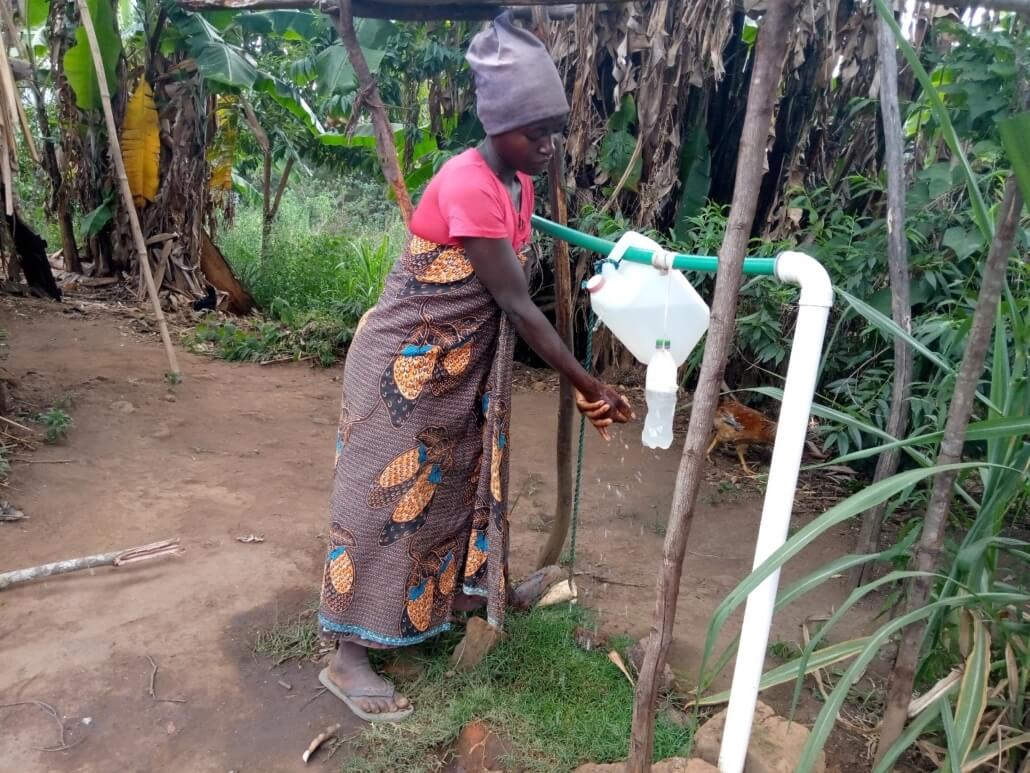
What foods do you prepare at home? What do you think about the Rise Against Hunger meals that you and Anjelika eat?
Both Anjelika and I eat the Rise Against Hunger meals once or twice per day. When cooking the meals, I add salt and a little oil. We usually eat three meals per day. Other foods that we eat are ugali, yams, potatoes, bananas, beans, vegetables, sardines, and fruits. Anjelika is not picky. She eats any kind of food that I provide to her. Since we started eating the Rise Against Hunger meals, Anjelika has become very active and she looks healthy all the time. Personally, when I eat these meals, I become stronger and I do my activities as usual with more energy.
“Since we started eating the Rise Against Hunger meals, Anjelika has become very active and she looks healthy all the time. Personally, when I eat these meals, I become stronger and I do my activities as usual with more energy.”
– Pelesiana Mhole, RCP mom
What are the personal changes you’ve made in your life since joining RCP that have resulted in better health for you and you children? What are you doing differently now?
I have learned a lot from the program. One of the things that I have changed is teeth brushing. Formerly, I used to brush my teeth once or sometimes not at all for a couple of days, but now I brush my teeth once or twice per day. For me, it is a great improvement. I have also learned that it is important that I give my child a variety of different foods.
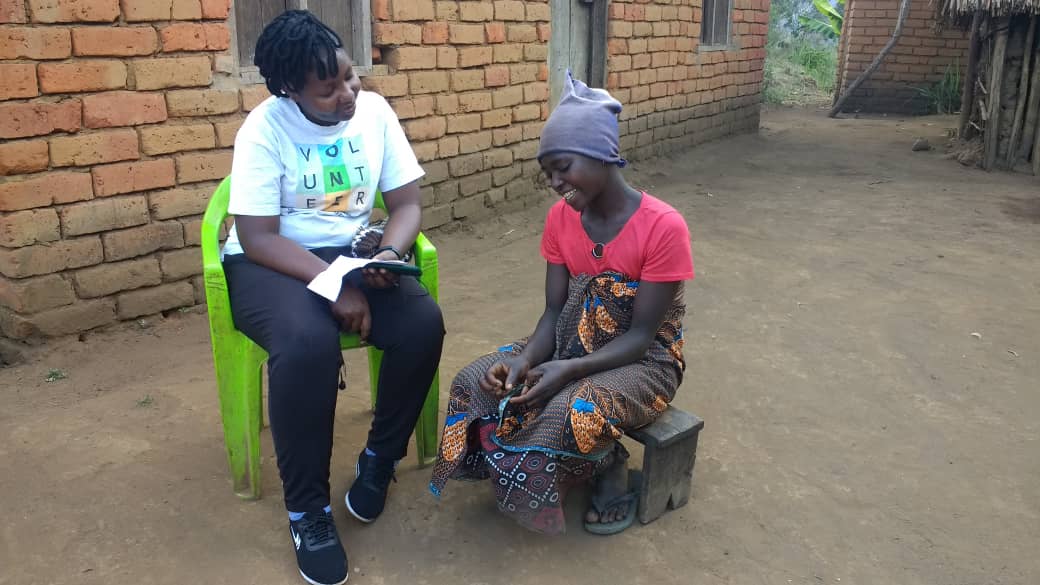
If you have been using the clinic services in Ipalamwa, how are they different from medical services available before the clinic opened?
The services at the Ipalamwa General Clinic are great compared to the dispensaries because at IGC a patient gets diagnosed before he or she is given medicine. This is not the case at the dispensaries.
What are you most proud of in your family? What do you hope for in the future?
I feel so happy when I see my child because she is also happy. When I get enough funds from farming, I want to start a business of selling fried bread around the street. I would like my child to become a tailor and a clothes designer in the future.
What values from your ancestors and cultures are you trying to maintain?
When there is a celebration or after a funeral has ended, many people participate and help each other. We usually make local beer for all the attendees to drink.

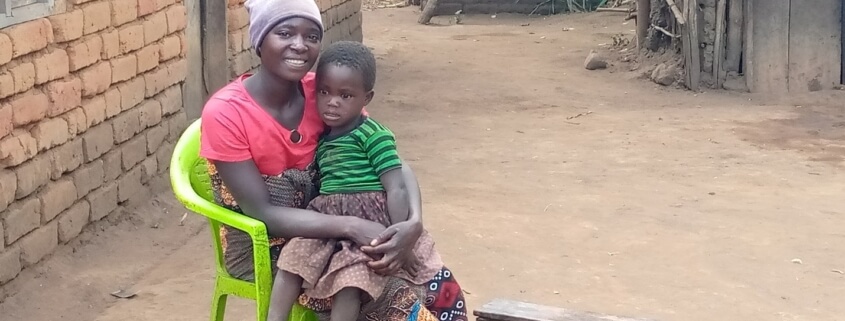
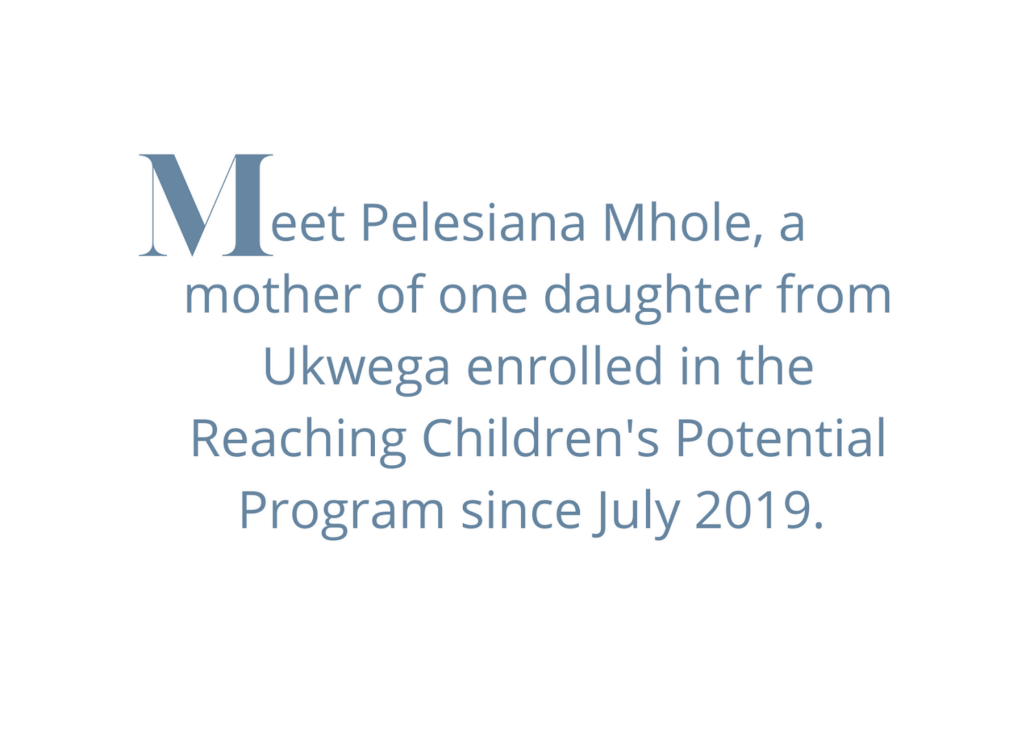
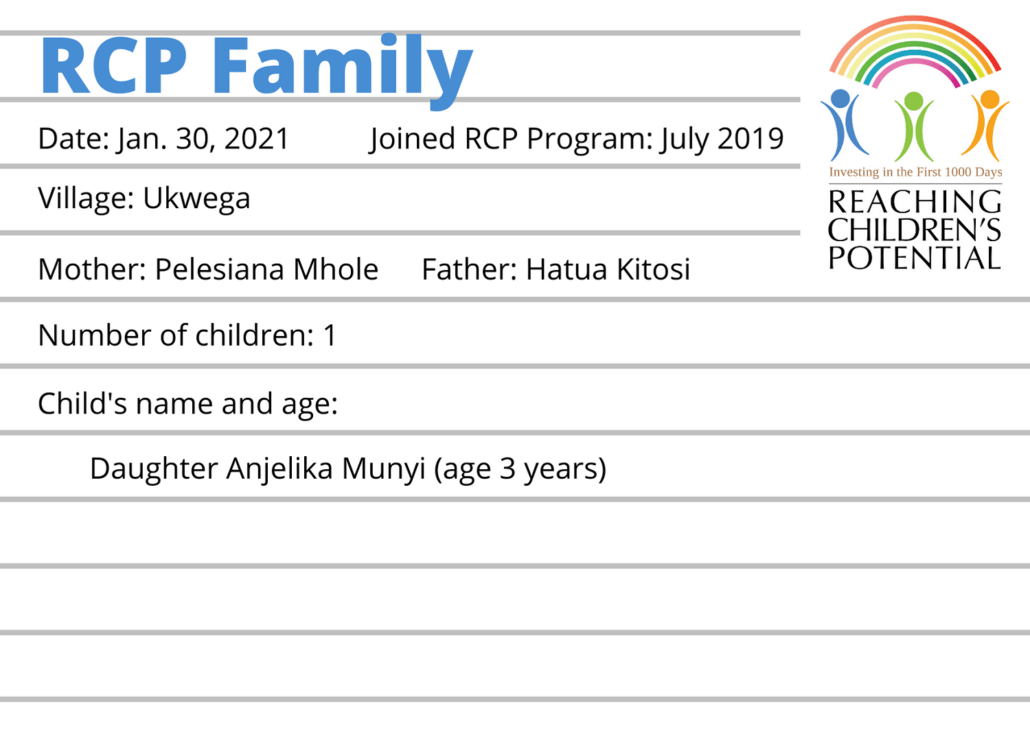


Leave a Reply
Want to join the discussion?Feel free to contribute!